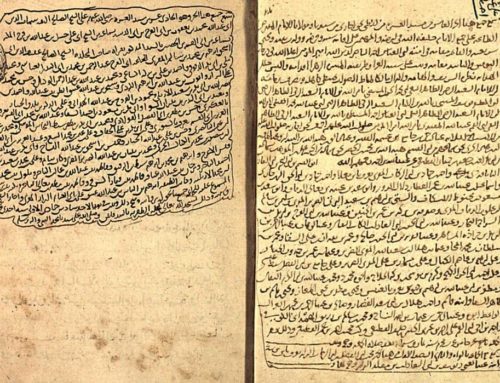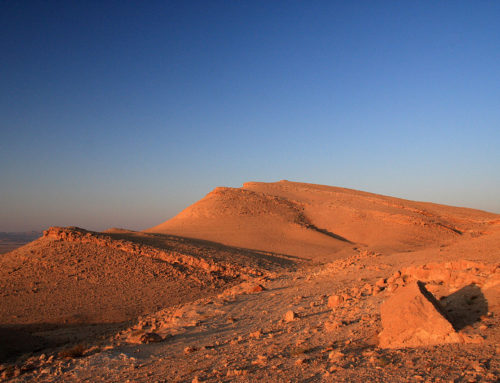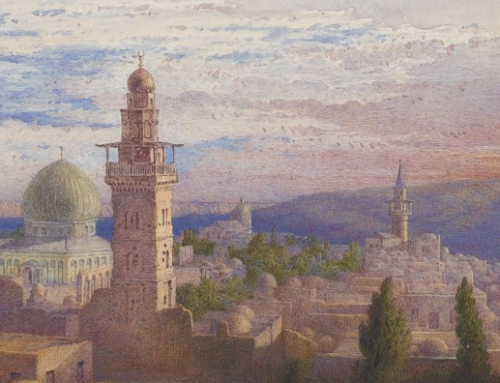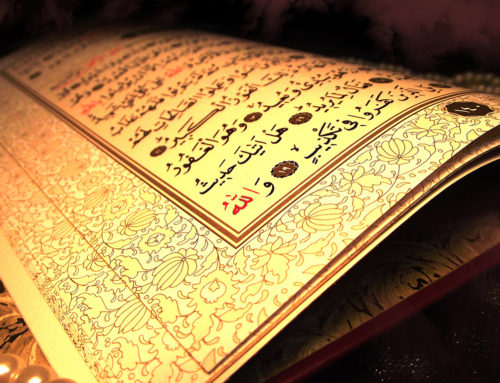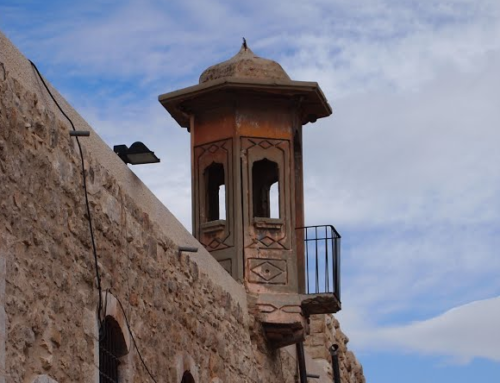Translated by Majlis al-‘Ulama of South Africa.
Edited by Ismaeel Nakhuda
Tasawwuf was the special focus of the seniors of Deoband who, on completion of their exoteric studies, would not rest until they had achieved proficiency in the esoteric sciences to become ‘ulama who embodied the two wings of Shari‘ah and Tariqah. The letters of the seniors of Deoband are replete with discussions on Tasawwuf and highlight the importance that they gave to spiritual reformation. The following is a collection of three letters between Imam Rabbani Mawlana Rashid Ahmad Gangohi and Mawlana Khalil Ahmad Saharanpuri. These letters are of twelve that appear in Tadhkirat al-Rashid and Tadhkirat al-Khalil. Shaykh al-Hadith Mawlana Muhammad Zakariyya would advise his murids, especially those who had been granted khilafah, to read these letters diligently. These three letters were also reproduced in Shaykh al-Hadith’s introduction to Ikmal al-Shiyam. They provide excellent insight into our seniors and exemplify the way they lowered themselves in front of their spiritual guides to reform themselves. Incidentally, Ikmal al-Shiyam is to be soon published by White Thread Press together with Shaykh al-Hadith’s introduction – editor.
Mawlana Khalil Ahmad Saharanpuri’s Letter
My master and mawla, the medium of my day and night — may Allah perpetuate the shadow of your blessings.
The lowliest slave, the smallest of those who pay homage and the worse from among the murids, the disgraced Khalil — after offering his salutations and salams — wishes to say that for some time I have intended to inform you of my lowly and sorrowful condition. However, fear of being audacious and the anxiety relating to not having means became a misfortune for the self and an impediment.
Firstly, after the association (i.e. bay‘ah) and by virtue of [your] spiritual attention (tawajjuh), I felt the consolation that is felt by a child. However, since the blessed days of fasting (Ramadan) I have been thrown into an abyss of confusion — what can I say? Save proximity [to] (qurb) and joining (wisal) [with Allah], I am experiencing distance and a feeling of being forsaken. It is not just loss of that spiritual state (hal) but there is also a feeling of the matter being strait in that there is no way of proximity, joining and witnessing Him (mushahadah) — I have nothing in respect to the Lord of Lords Who is Most High. From the beginning until the present time, this useless one has been unable to do anything. Nevertheless, the grace of Allah Most High has been with me by virtue of your spiritual attention. Although I have always been deficient in the fulfilment of commands, you have not curtailed your acute benevolence. As a result, I have always mustered courage [to continue]. My courage, however, is now breaking; in fact it has now broken. We have not recognised you as you deserve.
Whatever I think about, I see “the other” (ghayr) [1]The word ghayr is used by the Sufis to mean things apart from Allah Most High. Only when the heart is removed from all sorts of ghayr will it be in a position to be for Allah [editor]. — the different types of nur are ghayr, existence (wujud) is ghayr and bewilderment (hayrat) [2]A spiritual state of ecstatic bewilderment in Divine Presence [translator]. is ghayr. The heart yearns for the perception of the divine (idrak) in a formless state; this, however, appears impossible. There is no formless idrak. Whatever idrak that occurs is coupled to some form.
[Mawlana Saharanpuri then quotes a couplet from an Urdu poem, the translation of which is as follows – editor]
The search is for You; tell us where.
The point is that my temperament remains in strange thoughts. There was, at the beginning, hope of a gracious gaze which could be seen; now it cannot be seen even when searching for it — it is as if it was something never mentioned. Along with this bewilderment, darkness can be felt which seems to be from one side. Nevertheless, all praise is for Allah and again all praise is for Him that [the feeling of] hudur [3]The sense of the presence of Allah Most High. This is what the Sufis aspire [editor]. is intact and there is a feeling of consolation in the interior of the heart. To be more audacious and write further would be disrespectful. If there is a blessed prayer for this servant in this respect then do instruct as it will be a means for contentment and peace.
[Mawlana Saharanpuri then quotes the following Urdu poem – editor]
Let it enlighten the various sections of the heart and soul
So that you may become a coveted full moon,
It is heard that with your light you
Enlighten the fourteen worlds at once.
The most contemptible servant who is hopeful for your gracious gaze.
Khalil Ahmad (may he be forgiven)
Saharanpur,
Friday, 9 Dhu ‘l-Qa‘dah, 1315 ah
Mawlana Rashid Ahmad Gangohi’s Reply
From the slave Rashid Ahmad (may he be forgiven).
After the sunnah salam, know that your letter has reached me. Your condition has been understood. Whatever you have written in regard to bewilderment is, in fact, divine proximity — the saints have said that those in close divine proximity dwell in bewilderment.
The Being (dhat) of Allah is beyond comprehension (idrak) as is said [in the Qur’an]: “Eyes cannot comprehend Him” (6:103). In fact, even the heart and intelligence of man cannot comprehend Him.
[Mawlana Gangohi then quotes a Persian poem, the translation of which is as follows — editor]
Other than those who have been granted the spiritual foresight of the Realm of A’last,
None else can even imagine the reality of The True Existence. [4]The translation of this poem has been kindly provided by Mawlana Tameem Ahmadi. The mawlana also provided a brief explanation of the above poem, he writes, “No human being can ever comprehend the … Continue reading
That Being is absolute (mutlaq) — in fact, He is above absoluteness (itlaq); there is no scope for even any sense of absoluteness. Whatever has entered one’s heart or mind is all ghayr; the Pure Being is free of all that. Hence, in such a condition what possibility is there for a formless state? The lot of the slave is only hudur and that is all. All praise is for Allah that you have acquired a portion of this. The hadith, “That you worship your Cherisher as you are seeing Him,” is everyone’s purpose and this is the claim of the Messenger of Allah (Allah bless him and give him peace). Fortunate is he who attains whatever amount of it.
All other spiritual conditions (hal) besides this are not the purpose. Thus, on the basis of [the Qur’anic verse]: “If you are grateful, I shall certainly increase (my bounties) for you,” (14:7) continue to strive in [developing] the relationship (nisbat) of hudur and do not seek anything else. Hope for the kindness of Allah.
[Mawlana Gangohi then quotes a Persian couplet, the translation of which is as follows — editor]
Whatever little water the cupbearer pours us is exact kindness.
Wa ‘l-Salam. Pray for this slave who will also supplicate for you.
14 Dhu ‘l-Qa‘dah 1315 ah
Mawlana Gangohi’s Second Letter
Molwi Khalil Ahmad, Al-Salamu ‘alaykum.
Your letter has arrived. I am extremely pleased to learn of the said [condition of] hudur and your inability to express gratitude [for this state] — all praise for this is due unto Allah. If every particle and hair of man were to be transformed into thousands and thousands of tongues and then one were to wish for a lengthy period of time of this world to give thanks for the most insignificant favour [of Allah], then thanking Allah Most High would not be possible. In fact, every intention to express thanks is also a great blessing. Who is there who can express gratefulness for the accordance of [the condition of] hudur?
Yes, if Allah accepts man’s inability of giving thanks in lieu of thanks, then it would not be too remote to say that the slave is under [divine] favour in that such a worthless and incapable one has had dealings with the Eternal Benefactor. He should thus completely annihilate himself and become shameful. The shame of one’s shortcomings and His favours should make one feel as if one is nothing. What else can be done?
It is of great thanks that you have been bestowed with this station (maqam) which, in the nomenclature of the Naqshbandis, is known as yad-dasht. Now, along with this yad-dasht, it is essential to have shame for Allah Who is the true sovereign. Just as one will not commit a displeasing degrading act in the presence of some senior benefactor of standing, so too should be one’s attitude in privacy with that ever present and seeing (hazir wa nazir) Protector (mawla), so that the reality of hudur can be complete.
Measure and weigh every act of yours, while keeping in view the Master Most High, according to the scale of Shari‘ah, which is the law by which to acquire [His] pleasure. This meditation (muraqabah) should be practised constantly. In short, one should contemplate every action in front of that Being; every action should be fulfilled or abandoned on the basis of His pleasure and displeasure — this is ihsan; may Allah grant us accordance. Pray for this incapable one that he also may be bestowed with this. Alas, life has been wasted and the actual goal has not been attained. However, the good estimate (husn al-zann) of friends could be of use then I have hope in [the hadith]: “I am according to the opinion which My servant has of Me.”
Regarding the issue of nikah, what advice can I give? It is my firm belief that there is no comfort in anything in the way there is in remaining unmarried. However, from among those necessary needs there is also nikah and to fulfil one necessity one needs to tolerate many difficulties. If there is no need to fulfil this need then I do not feel having a family is better than remaining single. However, if the intention is to increase the Ummah, then this is a different matter. Hence, I am unable to write anything clear and decisive on this issue — you know your situation more than I.
Regarding your desire to take up residence in Gangoh, what objection do I have? What else can I say? I have no objection regarding this. If you feel that it will be beneficial for you, then that is better… [5] There is a short sentence here which has not been translated as its meaning is unclear [editor]. Continue to meticulously ask regarding your [spiritual] condition. That is all.
| ↑1 | The word ghayr is used by the Sufis to mean things apart from Allah Most High. Only when the heart is removed from all sorts of ghayr will it be in a position to be for Allah [editor]. |
|---|---|
| ↑2 | A spiritual state of ecstatic bewilderment in Divine Presence [translator]. |
| ↑3 | The sense of the presence of Allah Most High. This is what the Sufis aspire [editor]. |
| ↑4 | The translation of this poem has been kindly provided by Mawlana Tameem Ahmadi. The mawlana also provided a brief explanation of the above poem, he writes, “No human being can ever comprehend the true reality of Allah Most High’s sublime Being. The only thing that can ever perceive His existence is the heart of the gnostic (‘arif) who has been endowed with the recognition (ma‘rifah) of Allah Most High and remembers the ancient covenant from the World of Souls (‘Alam Arwah) when the souls answered the call of their Sustainer saying ‘of course’ (bala).” He also adds that the ancient covenant is referred to by the Sufis as the ‘Ahd-i-A’lastu; a name that has roots in the Qur’an (7:172) [editor]. |
| ↑5 | There is a short sentence here which has not been translated as its meaning is unclear [editor]. |


